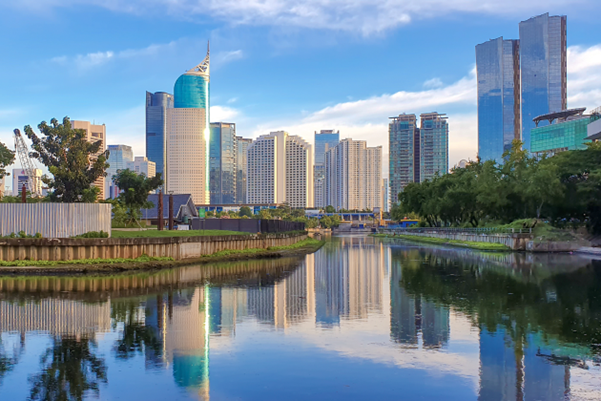Indonesia's central bank delivered a surprise rate hike on Wednesday, stepping up efforts to support the rupiah currency which has fallen to four-year lows on rising risk aversion and a delay in the expected timing of any U.S. policy easing.
Bank Indonesia (BI) raised the 7-day reverse repurchase rate by 25 basis points (bps) to 6.25%, its highest since the bank made the instrument its main policy rate in 2016.
Six of 35 economists polled by Reuters had predicted the hike, which was BI's first since October. The rest had expected BI to stand pat.
BI also increased the overnight deposit facility and lending facility rates by the same amount to 5.50% and 7.00%, respectively.
"This hike in interest rates is to strengthen the stability of the rupiah exchange rate against the risk of a worsening global risks," BI Governor Perry Warjiyo told a briefing where the rate hike was announced.
The rupiah extended gains after the announcement and was up 0.45% against the dollar at 0736 GMT at 16,140. But it has still depreciated by around 4% so far this year.
In a rare forecast for the rupiah's movement, Warjiyo said it is expected to remain stable at around 16,200 per U.S. dollar in this quarter and to strengthen to 16,000 in the next quarter and to 15,800 by the fourth quarter this year.
The central bank has been intervening to defend the currency, which had fallen to around 16,200 per dollar - the weakest since 2020 - amid risk-off sentiment in markets as traders scale back expectations for U.S. rate cuts and worry about escalating tensions in the Middle East.
"The BI rate hike should narrow yield differentials, strengthen Indonesia's financial account, and ultimately anchor the under-pressure rupiah," said Satria Sambijantoro, an economist with Bahana Securities who predicted another 25-bps rate hike next month.
BI needs to remain hawkish to ensure market participants that it "will be on top of their game" and limit rupiah depreciation, Fakhrul Fulvian, a Trimegah Securities analyst said.
The "forward looking" policy decision is also aimed at ensuring that inflation remains within target as BI looks to mitigate the domestic impact of rising global energy and food prices, Warjiyo said.
Indonesia's annual inflation rate climbed to a seven-month high in March, though it remained close to the midpoint of BI's 1.5% to 3.5% target range.
BI's assessment showed that Indonesia's economy remains resilient and the central bank kept its outlook for growth in Southeast Asia's biggest economy at a range of 4.7% to 5.5% this year, compared to last year's 5.05% expansion.
(Reporting by Gayatri Suroyo, Fransiska Nangoy and Bernadette Christina; Editing by John Mair and Kim Coghill)
Copyright (2024) Thomson Reuters.
This article was written by Fransiska Nangoy and Gayatri Suroyo from Reuters and was legally licensed through the DiveMarketplace by Industry Dive. Please direct all licensing questions to legal@industrydive.com.

